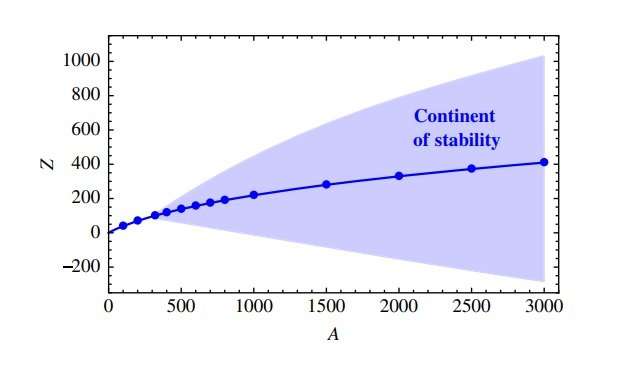Best of Last Week – Possible new form of matter, black holes as wormholes and why hunger makes people angry

It was another good week for physics as a trio of researchers from the University of Toronto suggested that a new form of matter may lie just beyond the periodic table. Bob Holdom, Jing Ren and Chen Zhang suggested that elements with masses greater than approximately 300 may be composed of freely flowing "up" and "down" quarks. And a team at QuTech in Delft announced that they had made the first "on demand" entanglement link—they generated entanglement between chips faster than the entanglement was lost.
In space news, an international team of astronomers made headlines when they reported that they had been able to see a distant eruption as a black hole destroyed a star—the first time such an event had been imaged. And a team from KU Leuven University suggested that speculative wormhole echoes could revolutionize astrophysics—because they might be evidence that black holes are actually a type of wormhole.
In other news, a study led by a team at Imperial College London led the group to report that they had discovered a new type of photosynthesis—one that uses near-infrared light instead of visible red light. And an international team reported on the "shocking" die-off of Africa's oldest baobabs—trees that have been around for thousands of years. And perhaps equally disturbing, a team with the Ragnar Frisch Centre for Economic Research in Norway found that IQ scores have been dropping since the 1970s. Also, a study by a team at MIT led to AI that senses people's pose through walls—and looks like X-ray vision without the X-rays. And a team at the University of Washington found that choice matters when weighing the environmental costs of producing meat and seafood. They found that consumers can make environmentally friendly food choices based on the types of meat and seafood they buy.
And finally, if you are one of the millions of people trying to lose weight by eating less, you might want to check out some research conducted by a team led by the University of North Carolina's Jennifer MacCormack—they found that hunger can lead to anger, but it's more complicated than a drop in blood sugar. Other environmental conditions can play a role as well.
© 2018 ScienceX